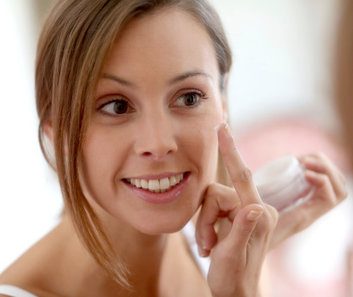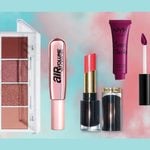How to make sure a product is really fragrance-free
Looking for fragrance-free cosmetics? Here’s how to ensure you’re choosing the right option

Source: Best Health magazine; March/April 2014; Image: Thinkstock
Q: I prefer fragrance-free cosmetics. What should I be looking for on the label to be certain that what I’m buying is actually fragrance-free?
I hear you. Dermatologists say that, for many people, a potential factor in skin irritation in cosmetics’anything from makeup to body lotion to face creams’is perfume, and it certainly can be for me. Although I love to spritz on my favourite fragrances from time to time, I don’t want scent in all of my products’especially those for my face. (Here’s a tip: Many eye creams have no scent, so I often dab them on my face as moisturizer.)
The Canadian Dermatology Association (CDA) Skin Health Program, which is a licensing labelling initiative for fragrance-free products, ‘recognizes that skincare products that are fragrance-free have low potential for irritation and do not contain the most common allergens,’ the CDA points out on its website. Says Toronto dermatologist Dr. Julia Carroll, ‘I do often recommend the avoidance of fragrance to my patients who suffer from irritation, allergies or eczema.’
Having said that, not all facial creams or cleansers containing fragrance have an irritating effect on me; some have been very tolerable and I enjoy using them’in fact, fragrance is one of the key factors that affect people’s preference for a product. So scented cosmetics are here to stay’but the good news is that there is more choice than ever for people who don’t want it in their products.
Bill Baker, CEO and founder of made-in-Canada Consonant Skincare‘which makes mainly scent-free products’says he has witnessed a sea change over the past five years. ‘Back then, customers would try some of an unscented cream on their hand, sniff it, and then ask what happened to the floral or citrus scent they had come to expect from cosmetics. But now they appreciate that most of what we make is fragrance-free. Yes, we have a few bath and body products with a touch of organic essential oil added for a whisper of scent. But we always encourage our customers to discover beauty in the simplicity of unscented products.’
Cake Beauty, another homegrown Canadian company’but one that is known for its sweet-scented products’launched ‘Unsweet’ Velveteen Hand Cream in 2011. Says Cake’s marketing and communications manager Maggie Fogg, ‘This was due to demand from certain customers who love our 95 percent natural, nourishing and luxurious formulas, but who perhaps are sensitive to scent or work in scent-free environments.’ The point is, more and more fragrance-free products are out there.
Okay, let’s move on to the labelling aspect. A product labelled fragrance-free or unscented most often means it contains no perfume, whether synthetic or naturally derived. But a product might still have a scent even if it is labelled fragrance-free’you’re smelling the ingredients’ intrinsic scent.
In some cases where a product smells virtually scent-free, ‘masking’ fragrance may have been used in the product to cover up the naturally occurring scents of any of the ingredients. (‘Parfum’ or ‘fragrance’ would be on the ingredients list.) Devoted customers simply come to know that these products are not perfumy.
Because of the variables, Darren Praznik, president and CEO of the Canadian Cosmetic, Toiletry and Fragrance Association (CCTFA), advises that if you are concerned about whether a product contains fragrance ingredients, ‘check the ingredients list, and look in particular for the words ‘parfum’ or ‘fragrance.”’ You can also contact the company and inquire. (But note that fragrance or parfum need not be listed if a company instead chooses to list every component of its scent. I know; it’s all a bit confusing.)
If you don’t mind having fragrance in a product but want to be assured that the fragrance is naturally derived’e.g., from essential oils such as lavender or orange’you’ll have to do a bit of homework. Some companies do a great job of making the issue clear either on their packaging or website. A few examples I know of are Fresh, Weleda and Jurlique.
But do be aware that essential oils can cause skin reactions, too. When Carroll advises patients experiencing irritation to stop using fragranced products, she also means natural ones.
This article originally appeared in the March/April 2014 issue of Best Health. Subscribe today to get the full Best Health experience’and never miss an issue!




